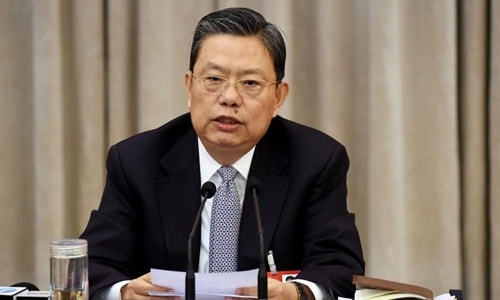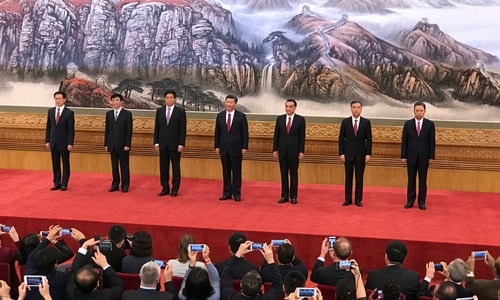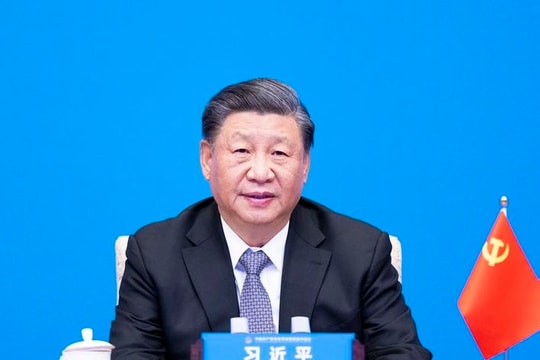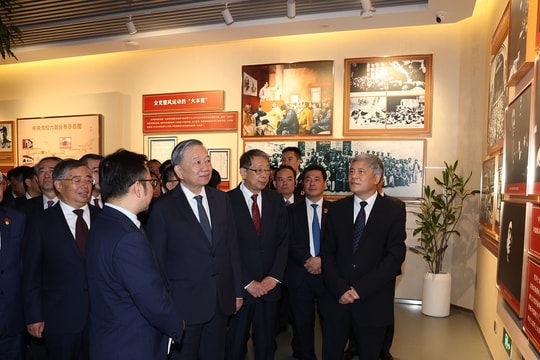Zhao Leji: China's new 'iron fist' against corruption
Zhao Leji will be the successor and continue the anti-corruption campaign of Chinese President Xi Jinping.
» Portraits of 7 powerful leaders of China
 |
Mr. Trieu Lac Te. Photo: Reuters. |
The Communist Party of China (CPC) today introduced seven members of the 19th Politburo Standing Committee, including Xi Jinping, Li Keqiang, Li Zhanshu, Wang Yang, Wang Huning, Han Zheng and Zhao Leji.
Xi Jinping, 64, was re-elected as General Secretary and Chairman of the Central Military Commission, while Zhao Leji, 60, was chosen as Director of the Central Commission for Discipline Inspection (CCDI), the CPC's anti-corruption agency.
The name Zhao Leji immediately attracted attention because now, he will become the new "iron hand" to fight corruption in China, in the context that President Xi Jinping still focuses on the goal of cleaning up the government apparatus in the ambition of "opening a new era" for the country, as he affirmed at the opening ceremony of the 19th National Congress of the Communist Party of China last week.
Having held the position of Head of the Central Organization Department of the CPC, Mr. Trieu is considered a worthy face to replace Mr. Wang Qishan, former director of the CCDI, who is considered Mr. Tap's "right-hand man" in the "anti-tiger and anti-fly" campaign.
Under the "iron hand" of Wang Qishan, the CCDI has investigated, disciplined and transferred files for prosecution of hundreds of thousands of corrupt party members and officials, including "big tigers" such as Zhou Yongkang, Xu Caihou, Bo Xilai... However, Mr. Wang is 69 years old this year and is no longer qualified to continue holding the position according to the unwritten rules of the CPC.
Born in 1957, Zhao Leji is the youngest member of the seven-member Politburo Standing Committee of China. He grew up in Xining, the capital of Qinghai Province in northwest China, but his parents are originally from Shaanxi, the same hometown as President Xi Jinping.
Mr. Trieu graduated from the Department of Philosophy, Peking University, and taught for three years at Qinghai Commercial School. In 1993, he assumed the position of Vice Mayor and Party Secretary of Tay Ninh City.
Seven years later, at the age of 42, he became governor of Qinghai, China's youngest provincial leader at the time. His tenure in Qinghai was marked by rapid economic growth in the province, with GDP tripling between 2000 and 2007.
In 2007, Zhao Leji was appointed party secretary of Shaanxi province, where people still call him "people's secretary" because of his frequent visits to poor areas.
In 2008,Shaanxi achievedGDP growth rate of 15%, becoming one of two provincial units at that time to complete the GDP growth target of over 13%.
 |
Seven members of the 19th Politburo Standing Committee of the Communist Party of China (CPC) were introduced to domestic and international media on October 25. Photo: AP. |
At the 18th Party Congress in 2012,Mr. Trieu was chosen as Head of the Central Organization Commission, in charge of appointing party personnel and compiling detailed reports on potential party leaders,Although he was not a prominent figure in the party apparatus at that time.
According to Nikkei Asian Review, Trieu became a close advisor to President Xi Jinping during his time building the foundation of his apparatus in his first term.
When former Chongqing Party Secretary Sun Zhengcai was removed from office and investigated for corruption in July, it was Mr. Zhao who went to the city to explain the situation to local officials.
In his new position as head of the CCDI, Mr. Zhao will have to "concentrate efforts to solve the problem of corruption" in society, as President Xi declared at the closing ceremony of the Party Congress on October 24, according to the Straits Times.
This effort includes establishing a disciplinary inspection system for county- and city-level party committees, passing a national anti-corruption law, and building an effective corruption reporting mechanism based on disciplinary investigation commissions and supervisory bodies.
According to VNE



